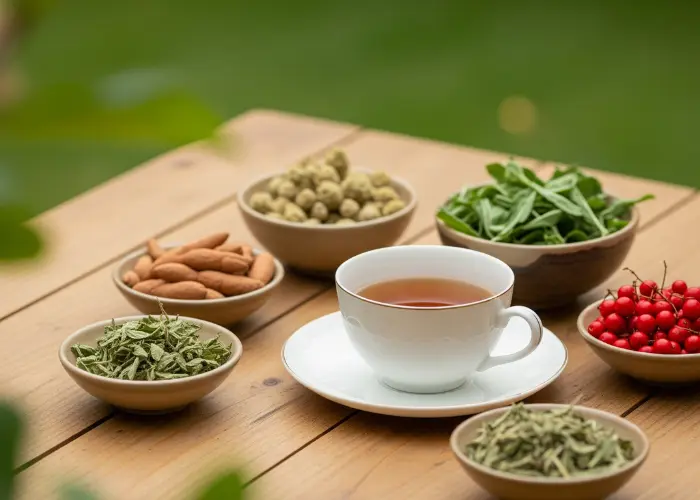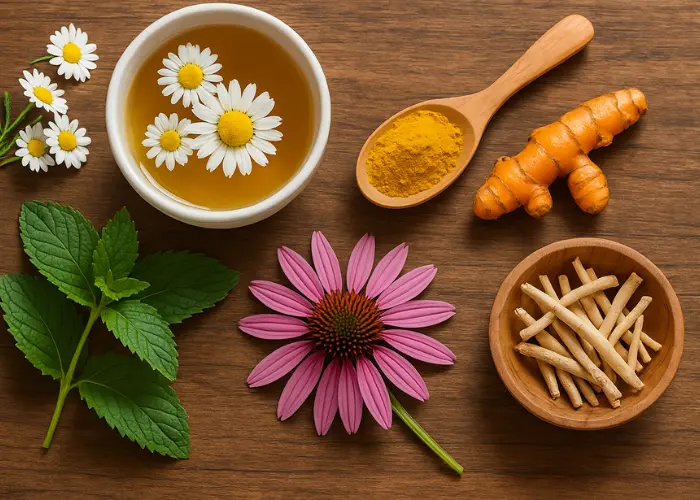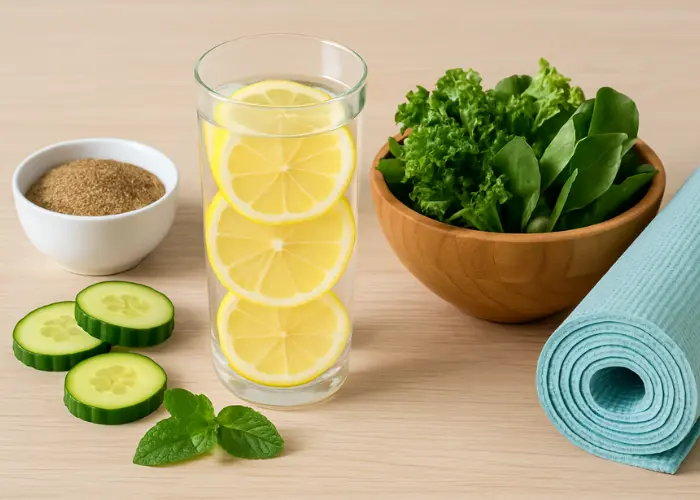Discover what adaptogens are, how they support stress relief and energy balance, and get 15 easy recipes to enjoy their powerful benefits.
Welcome to the World of Adaptogens: Nature’s Gentle Helpers
If you’ve ever felt like modern life pulls you in too many directions—mentally, emotionally, and physically—you’re not alone. The good news? There’s a growing interest in ancient plants known as adaptogens, which are gently helping people around the world feel more centered, energized, and resilient. And the best part? You can start using them today in simple, nourishing ways.
Think of adaptogens like wise friends from nature—quietly working behind the scenes to bring your body back into balance. They’ve been used for centuries in Ayurvedic, Chinese, and indigenous healing traditions, but only recently have they taken center stage in the world of wellness.
Let’s explore what makes them so powerful—and how you can invite these herbal allies into your daily routine.
What Are Adaptogens?
Adaptogens are a special group of herbs and mushrooms that help your body “adapt” to stress—whether it’s from work, relationships, environmental toxins, or even poor sleep.
They don’t push your body in one direction like caffeine or sugar might. Instead, they work more like a thermostat: bringing you up when you’re low, and calming you down when you’re overstimulated. The result? More balance, more energy, and a deeper sense of calm.
Imagine your body as a garden. When stress, anxiety, or burnout threaten to take over like weeds, adaptogens come in like gentle gardeners—nourishing, pruning, and helping everything grow harmoniously again.
15 Adaptogens and How to Use Them (With Simple Recipes!)
Here’s a beginner-friendly guide to 15 popular adaptogens, what they do, and how to prepare them. You don’t need to try them all—start with 1–2 that resonate with you.
1. Ashwagandha
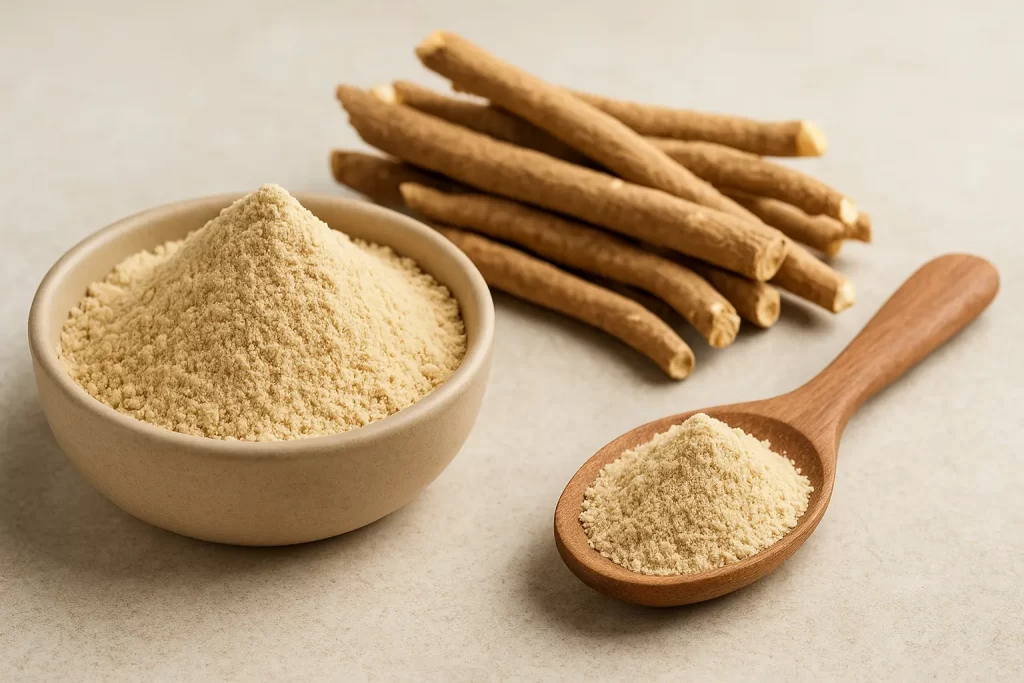
Helps with: Stress relief, sleep, hormonal balance
How to prepare: Mix ½ tsp powder into warm almond milk or golden milk
Try This:
Ashwagandha Moon Milk
- 1 cup warm milk (dairy or plant-based)
- ½ tsp ashwagandha
- ¼ tsp cinnamon
- 1 tsp honey
→ Stir and sip before bed
2. Rhodiola Rosea
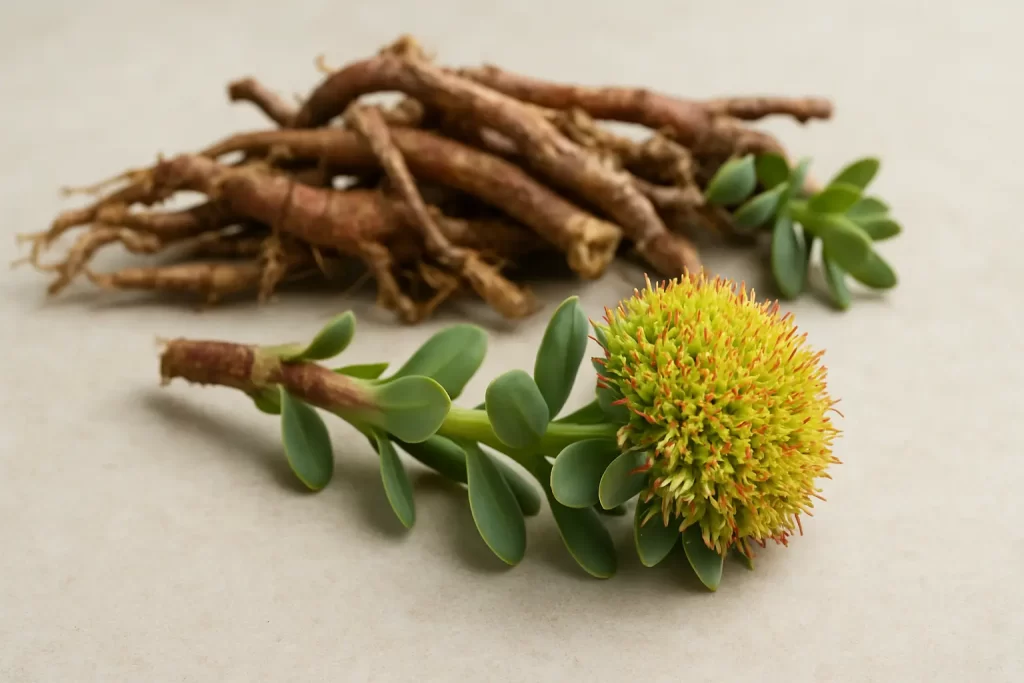
Helps with: Energy, mental clarity, physical endurance
How to prepare: Brew root as a tea (steep 1 tsp in hot water for 5–10 minutes)
Try This: Add to your morning tea with lemon and honey
3. Holy Basil (Tulsi)
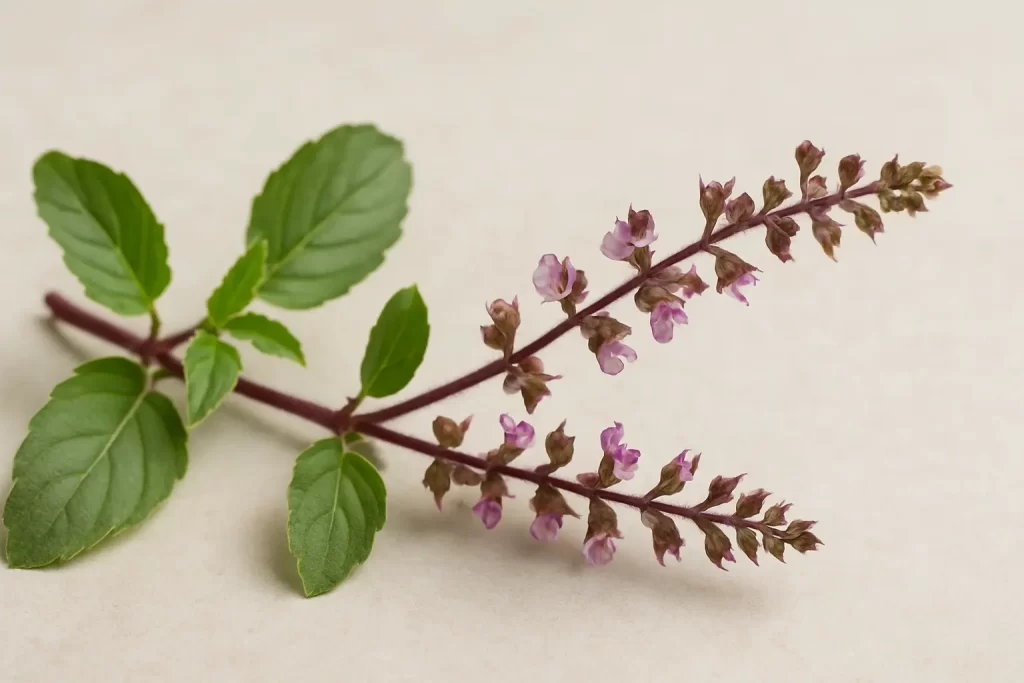
Helps with: Mood balance, anxiety, immune strength
How to prepare: Use fresh or dried leaves in tea
Try This:
Tulsi Green Tea Boost
- 1 tsp dried tulsi
- 1 green tea bag
- 1 tsp lemon juice
4. Eleuthero (Siberian Ginseng)
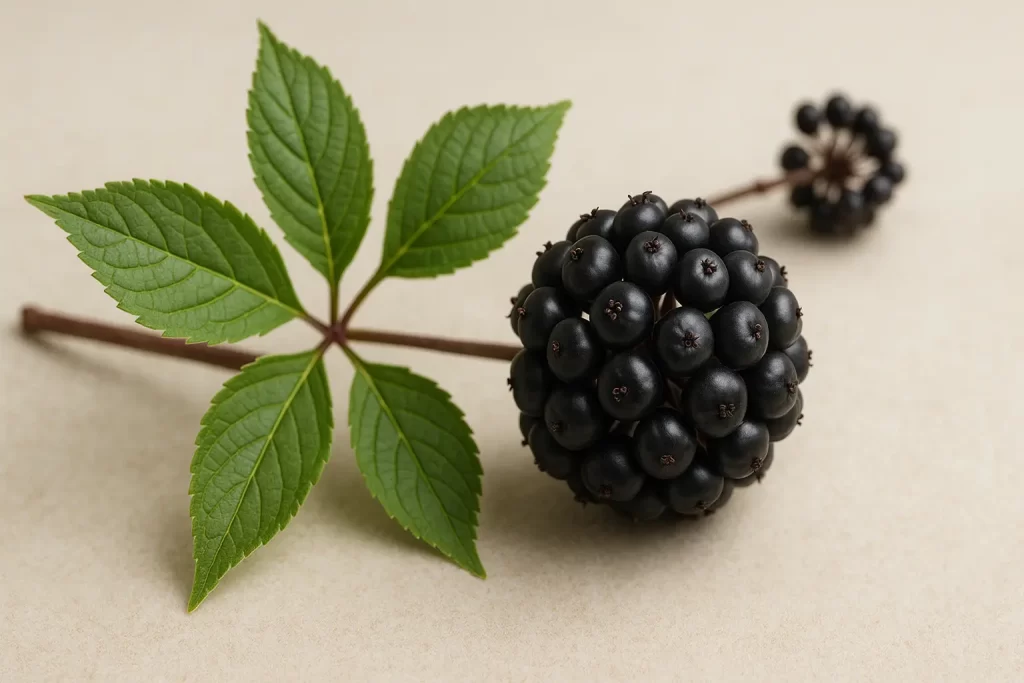
Helps with: Stamina, adrenal support
How to prepare: Use tincture or decoction (simmer root 20 min)
Try This: Add to herbal chai or bone broth
5. Schisandra Berry

Helps with: Liver health, skin glow, endurance
How to prepare: Simmer 1 tsp dried berries in water or use powder in smoothies
Try This:
Schisandra Beauty Tonic
- 1 tsp powder
- 1 cup coconut water
- 1 tsp lime juice
6. Reishi Mushroom

Helps with: Immunity, deep sleep, emotional balance
How to prepare: Simmer in hot water or use powder in hot cocoa
Try This:
Reishi Cacao Calm
- 1 cup oat milk
- 1 tsp reishi powder
- 1 tbsp cacao powder
- Dash of cinnamon
7. Cordyceps

Helps with: Energy, libido, physical performance
How to prepare: Add powder to smoothies or matcha
Try This:
Cordyceps Power Shake
- 1 frozen banana
- ½ tsp cordyceps
- 1 cup almond milk
- 1 tbsp almond butter
8. Licorice Root

Helps with: Adrenal support, respiratory health
How to prepare: Use in tea blends (limit intake if high blood pressure)
Try This: Blend with peppermint and chamomile for calming tea
9. Maca Root
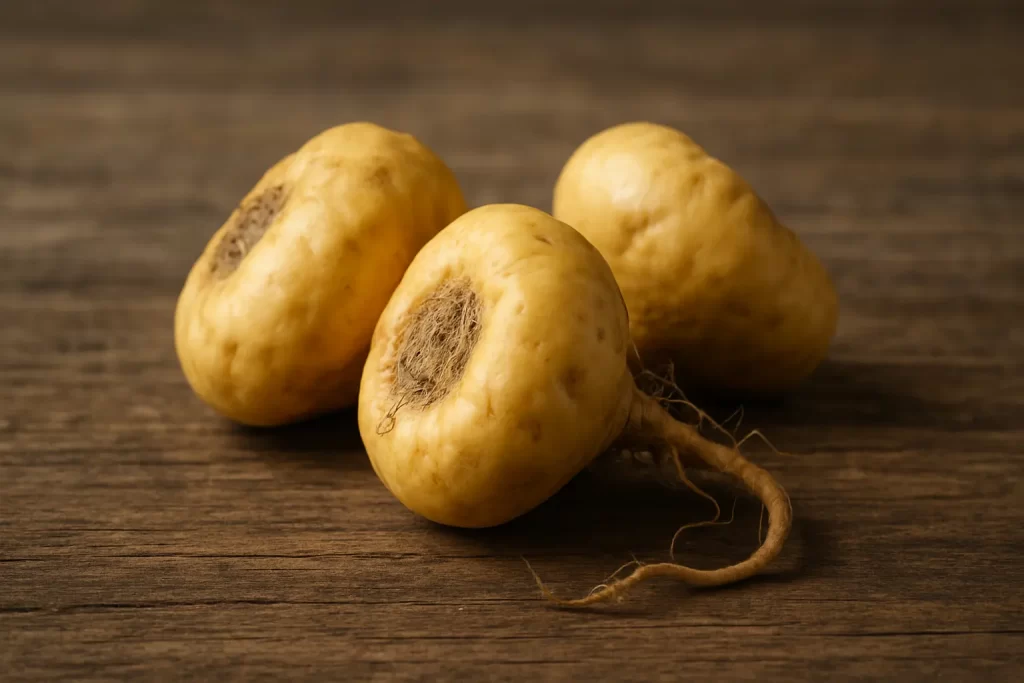
Helps with: Hormonal balance, libido, energy
How to prepare: Stir powder into oatmeal or coffee
Try This:
Maca Morning Oats
- ½ cup oats
- 1 tsp maca
- 1 tbsp chia seeds
- Berries & honey on top
10. Gotu Kola

Helps with: Brain function, skin renewal, circulation
How to prepare: Steep leaves in tea
Try This: Blend into green juices or herb-infused waters
11. Astragalus Root
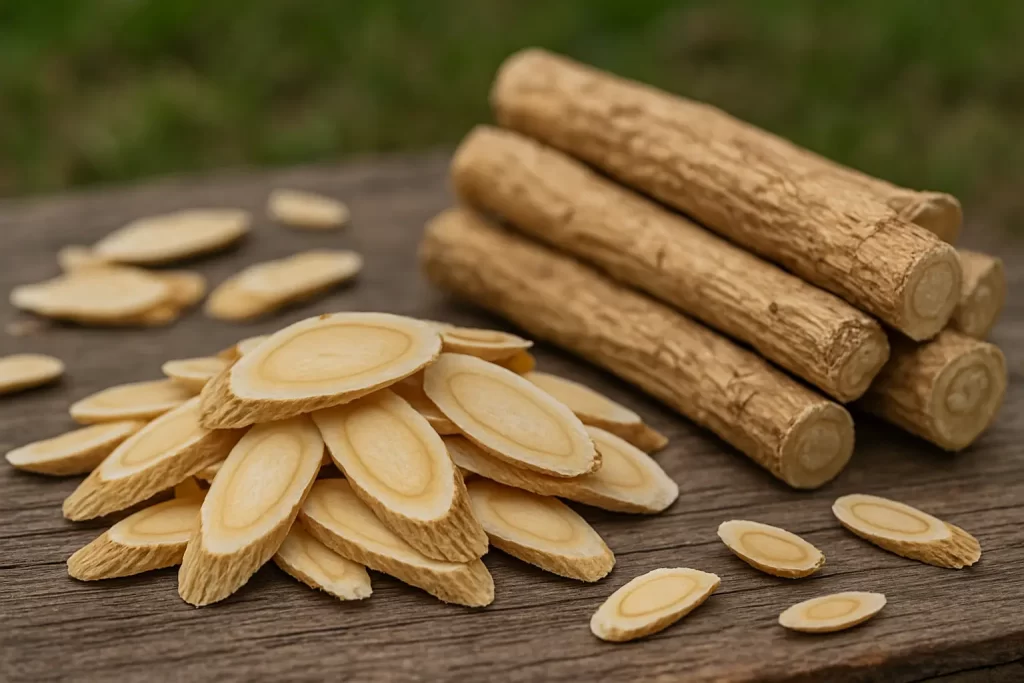
Helps with: Immune system, longevity
How to prepare: Simmer in soups or broths
Try This: Add slices to slow-cooked stews
12. Panax Ginseng
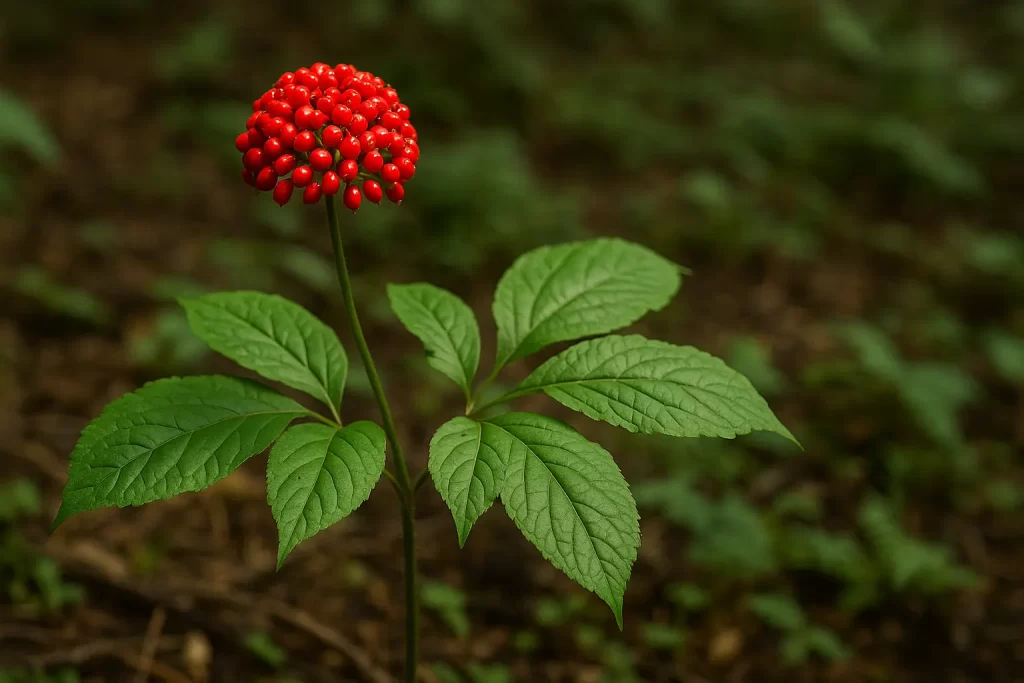
Helps with: Focus, stamina, blood sugar support
How to prepare: Brew in tea or take as a capsule
Try This: Morning ginseng + ginger tonic
13. Chaga Mushroom

Helps with: Antioxidant protection, immune function
How to prepare: Brew chunks or powder as tea
Try This: Chaga-chicory herbal coffee blend
14. Lion’s Mane Mushroom

Helps with: Brain health, memory, creativity
How to prepare: Powdered form in coffee or lattes
Try This: Add ½ tsp to your favorite latte
15. Shatavari
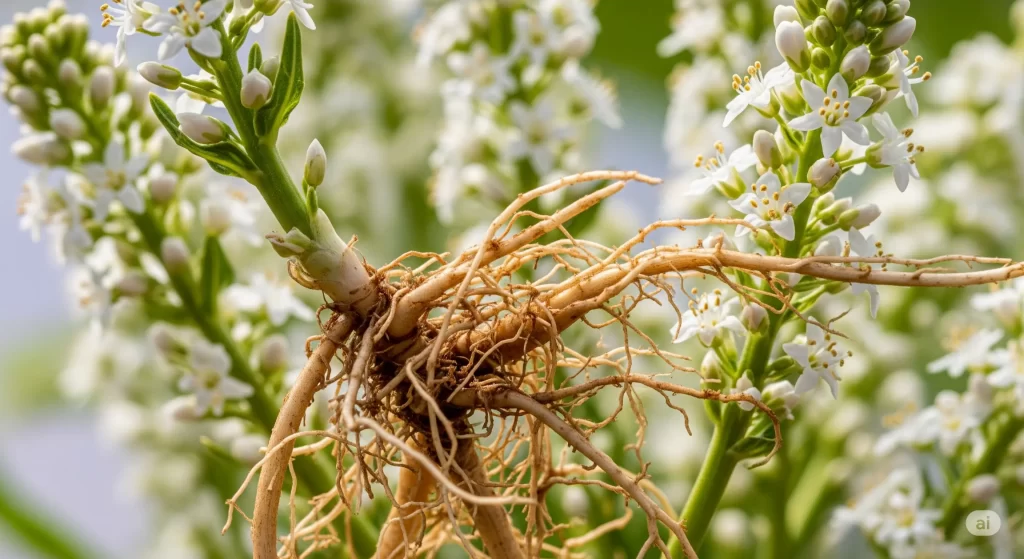
Helps with: Hormonal balance, reproductive support (especially for women)
How to prepare: Mix powder into warm milk
Try This:
Shatavari Rose Latte
- 1 cup warm milk
- 1 tsp shatavari
- ½ tsp rosewater
- Honey to taste
FAQ – Gentle Guidance for Your Adaptogen Journey
Q1. Can I take more than one adaptogen at a time?
Yes! Many adaptogens work well together. Start with one or two, and listen to how your body responds.
Q2. Are adaptogens safe for daily use?
Most are, especially when taken in food-like forms (teas, smoothies, etc.). Always consult your healthcare provider if pregnant, nursing, or on medication.
Q3. How long until I see results?
Some people feel benefits within days, others after a few weeks. Adaptogens work gradually, nourishing you over time.
Final Thoughts: Balance Begins With One Gentle Step
You don’t need to overhaul your life overnight. Just one soothing cup of ashwagandha tea or a sunny maca oatmeal breakfast can be a powerful act of self-care. Adaptogens are here to support you—not change you. Start small, listen to your body, and let nature do the rest.
✍️ By Vital Beauty Life
Helping you feel beautiful, healthy, and strong — from the inside out.
“Your best self starts here 🌿 – vitalbeautylife.com”
📣 Know someone who needs these tips? Share this post with them!
And let me know in the comments — what part helped you the most, and what would you like to read next?

